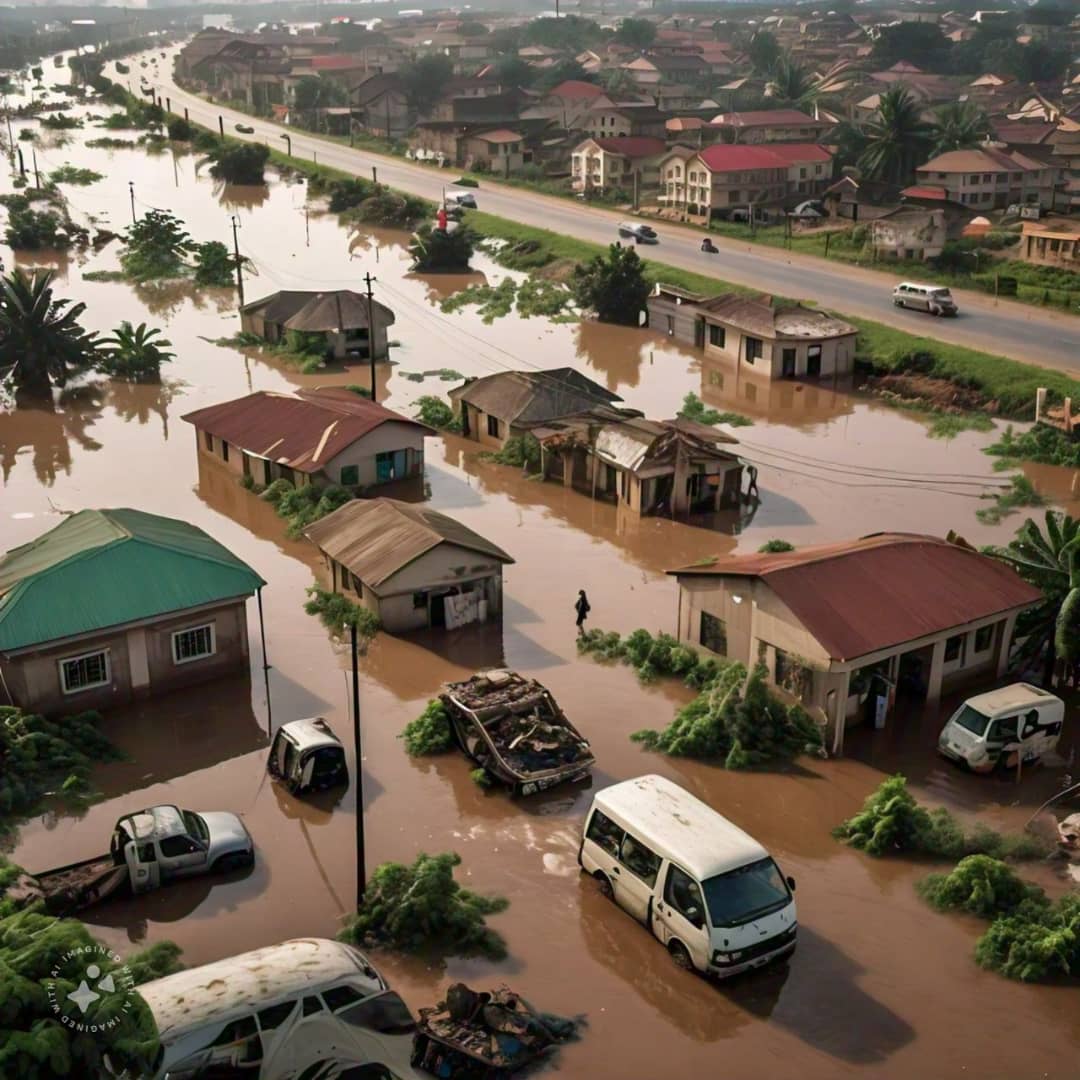Flooding and Its Effects on the Environment, Jobs and the Home.
By Lenient Amidu
Officials remain worried over heavy rains that have caused flooding as the rainy season is yet to peak… floods have also destroyed farmlands, affecting around 693 hectares (1,712 acres) of agricultural land. Nigeria is battling double-digit inflation, which has been stoked by high food prices.
Heavy rains have added to problems in the farming sector, where farmers are deserting their farms in the northeast due to repeated attacks by armed individuals. - Al Jazeera (27th Aug., 2024)
We have September, October to come. The rain is much more in September than in August, so only God knows what the state will be when we reach that time,” Haruna Mairiga of the Jigawa Emergency Management Agency told Al Jazeera.
This is September. The flooding situation in Nigeria is still a cause for National concern and intervention. Sources say 31 of the country's 36 states are at risk this year.
Nigeria, though exempt from other natural disasters such as hurricanes or earthquakes, continues to battle with flooding every year. Flooding is the most common and recurring disaster in Nigeria according to the United Nations Development Programs.
Flooding is the overflow of water into areas that are normally dry, causing damage to the environment, infrastructure, and human settlements. It happens when the water level exceeds the capacity of the land or waterways, resulting in an accumulation of water in low-lying areas, such as:
1. Rivers and streams overflowing their banks
2. Heavy rainfall exceeding soil absorption
3. Storm surges or tidal waves
4. Dam or levee failures
5. Urban drainage systems overwhelmed by heavy rainfall
Flooding has severe consequences that affect the home front and the economic situation of a nation. One of the most significant impacts of the flood is the damage to, and destruction of, homes and personal belongings. NEOC figures updated on Tuesday, the 24th of August, 2024, and released by the National Emergency Management Agency (NEMA) reported that 170 people have been killed, 1,941 injured, and 205,338 displaced from their homes in nearly all states as a result of flooding.
There is also a negative emotional impact on the individuals; grief, sadness, and loss of family and belongings.
Flooding also results in negative social impacts on a community causing events and festivals to be canceled.
It affects education and businesses in that community. Displaced persons cannot go to school for a while or earn a living as they have to rebuild their lives.
Flooding also affects the food availability situation of a nation as farmlands are destroyed and livestock are killed in some cases. There is also the displacement of farmers and herders.
Concerns have been raised as floods have also washed away standing crops on tens of thousands of hectares of land jeopardizing food availability in the West African nation this year.
This will result in loss to farmers, food shortage, and high cost of produce.
Flood waters can also become infected with water-borne disease-causing agents posing a threat to the health and well-being of humans and animals.
Floods damage vital infrastructure and prevent access to essential public services like hospitals, government offices, etc.
Various factors contribute to the flooding situation in the nation, particularly the North.
Residents reported through a survey that drainages are blocked by their actions such as refuse dumping in those drainages and pouring of sand into them as well. These clogged drainage systems leave them vulnerable during the rainy season.
In other areas, there are reports of no proper drainages or embankments. Proactive measures of both the government and residents can solve this.
Urbanization and Climate change are understated issues but highly implicated in cases of flooding.
The effects of floods are long-term and can be very costly, disruptive, and distressing for communities involved but with proper and thorough flooding management strategies, Nigeria will experience low disaster-impact months with time.





